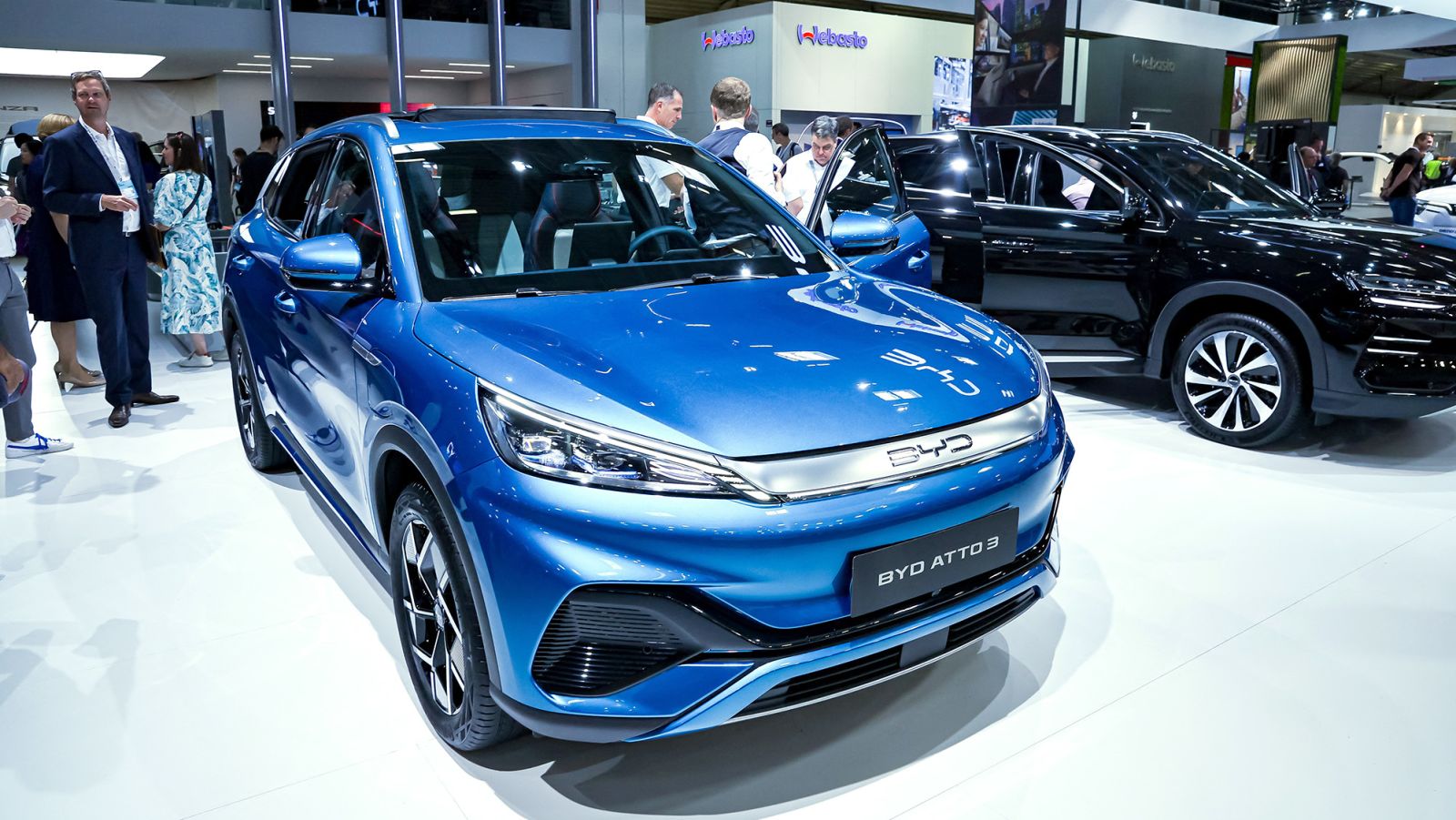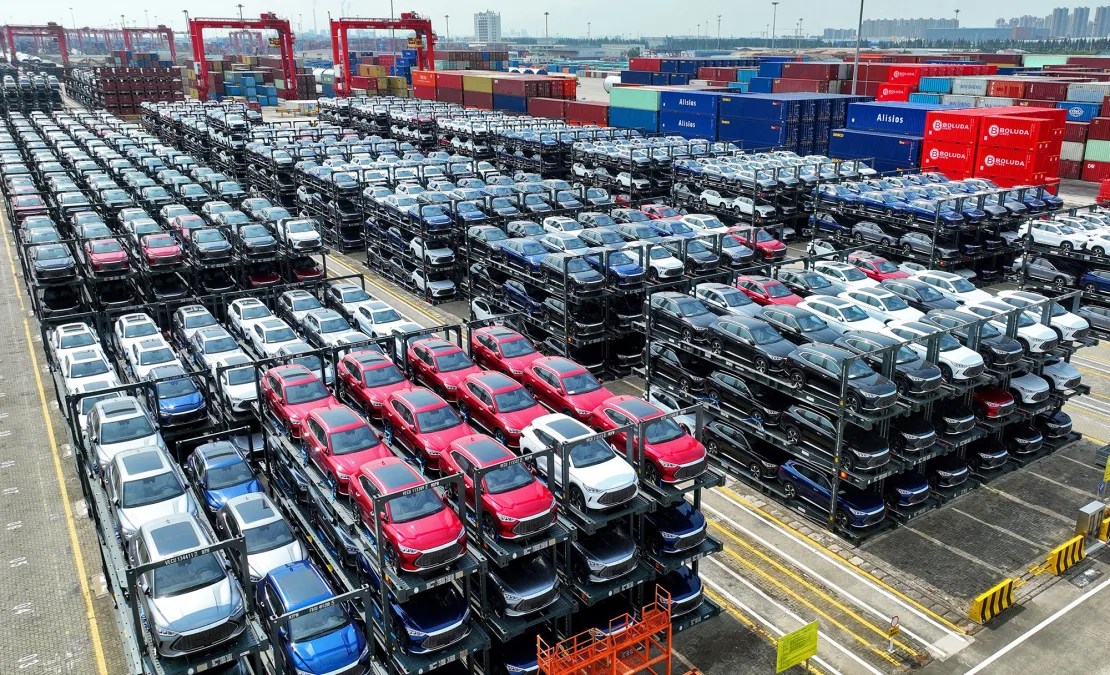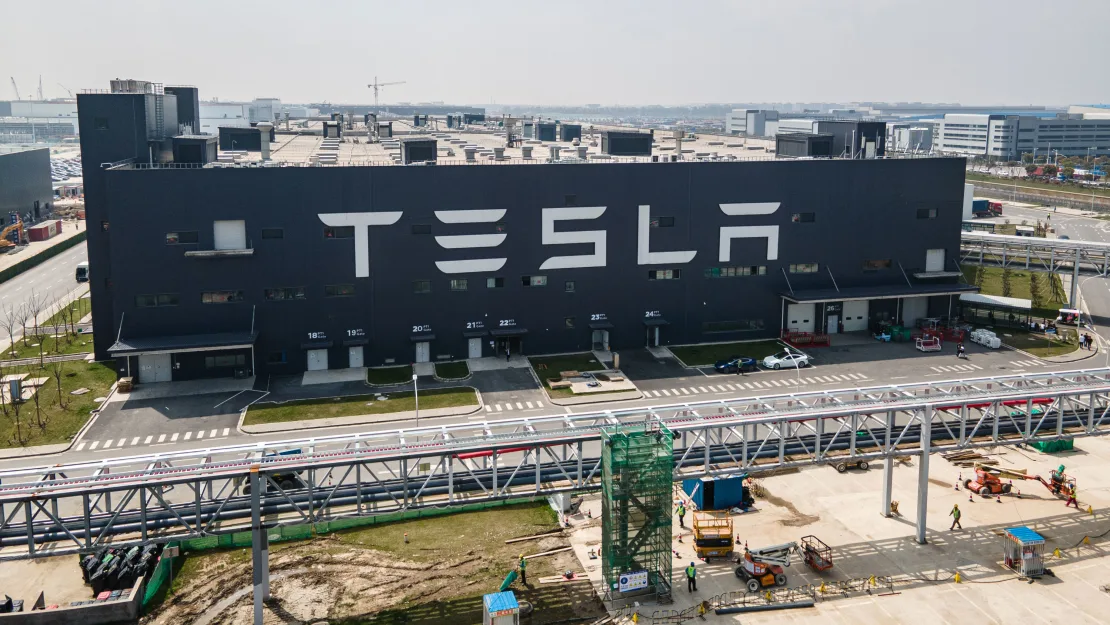BYD is set to overtake Tesla as the leading electric vehicle company

(CNN) — Chinese company BYD sold a record number of cars in 2023, moving it closer to displacing Tesla as the global leader in the electric vehicle market.
The company recorded a 62% rise in global sales from 2022 to just over three million units, according to stock exchange data.
Last year, BYD sold 1.57 million battery electric vehicles (BEVs), up 73%, as well as 1.44 million hybrids, up 52% from the previous year.
This Tuesday, Tesla will release sales data for the full year. Analysts expect the US electric vehicle maker to roughly meet its annual delivery target of 1.8 million BEVs. Hybrids are not for sale.
In 2022, BYD trailed Tesla in global BEV sales by about 400,000 units. The gap is expected to narrow by 2023. And in the last quarter, BYD may have already overtaken Elon Musk’s company.

BYD’s ATTO 3 is unveiled in Munich, Germany, September 4, 2023 (Leonhard Simon/Reuters)
BYD sold 526,409 BEVs in the fourth quarter, up more than 20% from the third quarter. Tesla likely delivered 473,000 units in the same quarter, according to a survey of 14 analysts cited by Reuters.
The rapid growth of Warren Buffett-backed BYD is emblematic of China’s growing electric vehicle industry.
China is making rapid progress in its transition to electric vehicles, thanks to strong government support for the industry.
Beijing has set a goal for at least 20% of new cars sold annually to be new energy vehicles (NEVs), which include BEVs, plug-in hybrids and hydrogen fuel cell vehicles, by 2025. The government says NEVs should become “mainstream” new car sales by 2035.
The first goal was reached in 2022, about three years earlier. The second one may also arrive earlier than expected.

BYD vehicles wait to be loaded onto a ship at the international container terminal at the port of Suzhou, east China’s Jiangsu province, 11 September 2023. (AFP/Getty Images)
NEVs sold 8.3 million units in the first 11 months of 2023, accounting for more than 30% of total vehicle sales, according to data released last month by the China Association of Automobile Manufacturers.
Miao Wei, China’s former minister of industry and information technology, said at an auto forum in November that the government’s target of 50% NEV penetration by 2035 will likely be achieved no later than 2025 or 2026, according to state media. .
According to analysts, China’s leadership in global industry is also due to the size of the market, cheap labor and dominance in supply chains.
“China now leads in manufacturing and is expanding its comparative advantage, relying on its huge domestic market and first mover advantage,” analysts at French investment bank Natixis Asia wrote in a report in late November.
Their first-mover advantage and government support through infrastructure investments and subsidies have made it easier for Chinese electric vehicle makers to expand at home and abroad, they said.

An aerial view of the Tesla Gigafactory on March 29, 2021 in Shanghai, China (Xiaolu Chu/Getty Images)
But increased competition and a brutal price war have hit many automakers’ profits in the past year.
As the Chinese economy lost momentum, automakers were concerned about slowing demand. Tesla cut prices in China in January to attract customers and slow slowing growth, sparking a price war. Dozens of automakers have done the same to stay competitive.
The price war boosted sales but threatened the profitability of the entire industry. In the first 11 months of last year, China’s auto industry profitability was just 5%, down from 5.7% in 2022 and 6.1% in 2021, according to data released last week by the government-backed China Passenger Car Association. industry group.
To offset the slowdown in the domestic market, Chinese automakers are seeking growth outside the continent, expanding their operations in Europe, Australia and Southeast Asia.
BYD announced last month that it would build an electric vehicle plant in Hungary, which would be its first plant in Europe. The company already has a bus plant in Komárom, Hungary.
